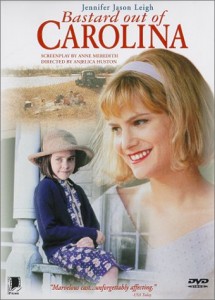It’s Time to Abolish the Maritime Film Classification Board
Last month’s announcement that the beloved and long-running Quinpool Road film rental store Video Difference, along with its Bedford satellite site, will shut down August 20th and sell off its stock of films brought a range of emotions from its customers.
The store was acclaimed as classy and well-run with a reputation for service and selection. A victim of changing times – like the blacksmith shops of a hundred years ago – the closing of Video Difference marks the end of an age.
With any luck, a bit of long-overdue collateral damage should be the Maritime Film Classification Board. The agency of the provincial government that issues ratings for theatrically played films and video store selections, the MFCB has lost about half of its rather thin reason to exist with the closure of last major video rental store in Halifax.
Known in the past as the Amusement Regulation Board, and scuttling between various Provincial Government departments over the years (it was once part of Housing and Consumer Affairs, for example), the Maritime Film Classification Board, which provides the classification of film and video for release in Nova Scotia and is also utilized as a rating service by New Brunswick and Prince Edward Island, will now only be responsible for rating about three hundred or so films shown at Cineplex Theatres. It is at present administered by the Alcohol, Gaming, Fuel and Tobacco Division (AGA) of Service Nova Scotia.
 That sudden drop in workload should provide an ample opportunity for the McNeil Government to get rid of the MFCB, once and for all. The Board hasn’t been able to “ban” or “censor” anything for years. Their only viable response to dealing with ‘offensive’ material is to not issue a rating. That’s something they haven’t done since the controversy of Angelica Huston’s film Bastard Out Of Carolina in 1997, a decision that was eventually overturned on appeal to the Nova Scotia Gaming Control Commission (appeals are now directed to the Utility and Review Board).
That sudden drop in workload should provide an ample opportunity for the McNeil Government to get rid of the MFCB, once and for all. The Board hasn’t been able to “ban” or “censor” anything for years. Their only viable response to dealing with ‘offensive’ material is to not issue a rating. That’s something they haven’t done since the controversy of Angelica Huston’s film Bastard Out Of Carolina in 1997, a decision that was eventually overturned on appeal to the Nova Scotia Gaming Control Commission (appeals are now directed to the Utility and Review Board).
The Board and its predecessors actually can boast of having an important place in the history of censorship in Canada. From 1974 to 1978 Dartmouth Free Press journalist Gerard MacNeil pursued the banning of Bernardo Bertulluci’s Last Tango In Paris all the way to the Supreme Court of Canada. They upheld its banning, but the Butler case a decade later saw the collapse of any Canadian Film Classification Board’s abilities to censor anything.
In the mid-1990s, I was part of the revamp of the Maritime Film Classification Board when the Liberal government of John Savage came up with the idea of applying cost recovery to the system.
Cost recovery was one of those catch-phrases that awkwardly covered up a money grab by the provincial and federal governments. It meant that you started to pay for a service that was formerly free. Cost recovery, when applied to the MFCB, meant that distributors would have to pay a per-minute fee for the pleasure of gaining a rating from the Board. Each feature film would end up costing somewhere between $300 to $500, depending on the running time of the film.
My role at the National Film Board of Canada’s Atlantic studio, along with parallel roles Wormwood’s Cinema, The Atlantic Film Festival and the Dalhousie Art Gallery, was to find a way to stop these rather large charges from being applied to the four small organizations that had no budget for such expenses.
Somehow, I managed to do just that, mostly scaring off the Province by leveraging the NFB’s Federal position. Charging the NFB for showing educational documentaries was just silly, as they were paid for by the taxpayers in the first place.
A couple of calls from the NFB’s ferocious lawyers scared off the MFCB, and exemptions were subsequently made for the Film Festival, Wormwood’s and the Dalhousie Art Gallery, who would have had to find between $5000 to $50,000 to pay the charges.
Alas, Sobeys, running the Empire Theatre Chain at the time, got stuck with the fees that kept the MFCB going. The whole organization was an anachronism from another age where the supporters of the political party in power would come into Halifax, watch three hours of movies, and charge the whole thing to the Provincial Government.
It was a juicy perk for mostly out-of-town party workers. And while some politicians made attempts to get rid of it (apparently Premier John Hamm came close), the MFCB is just too good to give up, even though it doesn’t really do anything useful anymore (if it ever did in the first place).
Well, here is the government’s chance. The system is a dinosaur – a relic from a bygone era. If we really need ratings (a debatable point in the era of free-flowing online information), they can come from either Ontario, or the MPAA in the United States. Nobody needs Nova Scotian film ratings anymore. The old saw of “Community Standards” has been eclipsed by the flood of material on the Internet. Besides, “Community Standards” always brought up the question of “whose community, whose standards?”
So with only three hundred or so films to be classified from now on, it’s time for the Maritime Film Classification Board to be put to bed.
Permanently.
Ron Foley Macdonald
Latest posts by Ron Foley Macdonald (see all)
- Mary Tyler Moore in Nova Scotia - January 30, 2017
- Viola Desmond’s Story on Film - December 11, 2016
- Bruce Springsteen’s “Born to Run” - December 9, 2016

